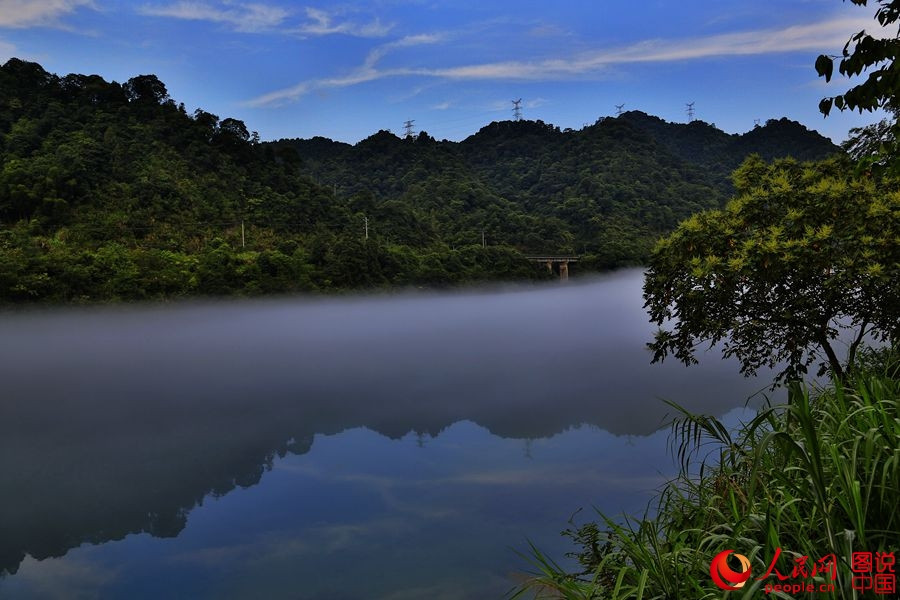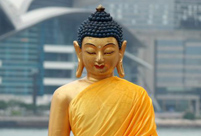 Vintage cars show kicks off in London
Vintage cars show kicks off in London
 Gorgeous scenery in NE China
Gorgeous scenery in NE China
 Picturesque Barkol grassland in Xinjiang
Picturesque Barkol grassland in Xinjiang
 Small Wild Goose Pagoda - A World Cultural Heritage Site along the Silk Road
Small Wild Goose Pagoda - A World Cultural Heritage Site along the Silk Road
 Maritime Silk Road Luxuries of the Han Dynasty
Maritime Silk Road Luxuries of the Han Dynasty
 Ciao! Chinese beauties!
Ciao! Chinese beauties!
 An eye feast: BFA freshmen registration
An eye feast: BFA freshmen registration
 Top 10 most lavish weddings
Top 10 most lavish weddings
 Most amazing chi-pao beauties
Most amazing chi-pao beauties
 Chinese lingerie brand arrives in Las Vegas
Chinese lingerie brand arrives in Las Vegas
 |
| President Xi Jinping and his wife, Peng Liyuan, wave after they were received by Indian Prime Minister Narendra Modi upon arrival at a hotel in Ahmedabad, India, on Wednesday. [Photo/Agencies] |
China and India highlighted their determination to boost ties in a whirlwind visit on Wednesday with not only key agreements but also relaxed protocol procedures, observers said, in an exceptional departure from tradition.
In Ahmedabad, Gujarat state, where President Xi Jinping started his three-day visit to India on Wednesday, he and Indian Prime Minister Narendra Modi witnessed the signing of an agreement concerning the establishment of industrial parks in Gujarat, Modi's home state, which he governed for 12 years.
The two sides also sealed agreements to establish a partnership between Guangdong province and Gujarat, and another between Guangzhou, capital of Guangdong, and Ahmedabad, the largest city of Gujarat.
More documents covering a range of sectors, including high-speed rail, are expected to be signed in New Delhi, Xi's next stop after his six-hour visit to Ahmedabad.
Indian media said it was the first time that pacts were signed by a visiting foreign dignitary outside the capital, while observers said the less formal itinerary of Xi, especially the interaction between Xi and Modi, will set a positive tone for Sino-Indian ties.
After a meeting shortly after Xi's arrival, the two leaders visited Sabarmati Ashram, home of Indian nationalist leader Mahatma Gandhi.
They then took a stroll at Sabarmati Riverfront Park before celebrating Modi's 64th birthday on Wednesday and had a dinner in a riverside tent.
The Sabarmati riverfront is a pet project of Modi, who as Gujarat chief minister developed it along the lines of the banks of the River Thames in London as a space that can be utilized by the public, said the Indo-Asian News Service.
Ahmedabad was decked to receive Xi, with local people waving to the Chinese delegation and billboards across the city showing a smiling Xi and Modi.
Modi accompanied Xi all the time during the hours-long stay in Ahmedabad.
Jiang Jingkui, director of the Center of South Asian Studies at Peking University, said the preparations showed the importance that Modi attached to the ties and the buildup of his personal relationship with Xi.
Modi also made clear his determination to continue learning from the Chinese development experience and to make good on his election promise of reviving India's flagging economy and creating jobs, said Jiang.
Modi has spoken of his admiration for China's economic growth in the last decade, and he came to China on a number of occasions as state chief to lure investors to Gujarat, whose powerhouse role for India will be strengthened by the three agreements signed on Wednesday, he added.
China is India's largest trade partner, with bilateral trade reaching $65.5 billion in 2013. Modi is eager to attract large-scale foreign direct investment from China to upgrade India's infrastructure.
Beijing also showed the visit's tenor and purpose from the large size of the delegation accompanying Xi, comprising senior ministers, leading business barons and bankers, AFP quoted Rajrishi Singhal, senior fellow at New Delhi think tank Gateway House, as saying.
Sun Shihai, a researcher on Southern Asian studies at the Chinese Academy of Social Sciences, said India's vast market and growth potential make Asia's third-biggest economy an ideal choice for Chinese investors.
The growing economic links and warm personal relationship between the leaders could help China's diplomatic agenda of forging ties with neighboring countries, said Sun.
During his stay in New Delhi, Xi is scheduled to meet with Modi again, as well as with Indian President Pranab Mukherjee and other political leaders. He will also deliver a speech on China-India relations and China's South Asia policy.
Friday is the last day of the trip, the first visit by a Chinese president to India since 2006.
 Leading director Wang Quan'an detained for 'buying sex'
Leading director Wang Quan'an detained for 'buying sex' Heaven on earth: Dongjiang Lake in Hunan
Heaven on earth: Dongjiang Lake in Hunan Mixed reaction to smartphone sidewalk
Mixed reaction to smartphone sidewalk 'Rainbow running' race in Jiangxi
'Rainbow running' race in Jiangxi Tourists float with lotus in park in Taipei
Tourists float with lotus in park in Taipei Amazing aerial photos of China's Xisha Islands
Amazing aerial photos of China's Xisha Islands Chinese Buddhist Canon blesses Hong Kong
Chinese Buddhist Canon blesses Hong Kong Beautiful postgraduate teaches in remote area
Beautiful postgraduate teaches in remote area Top 10 world's highest-paid models 2014
Top 10 world's highest-paid models 2014 Lingerie show at 2014 Miss China
Lingerie show at 2014 Miss China Songstress Li Xianglan dies at 94
Songstress Li Xianglan dies at 94 Police recruiting posters
Police recruiting posters Anshun Daxi- Living fossil of Chinese drama
Anshun Daxi- Living fossil of Chinese drama Urban farmers in China
Urban farmers in China 'Firepower-2014 Weibei'military exercise
'Firepower-2014 Weibei'military exerciseDay|Week|Month